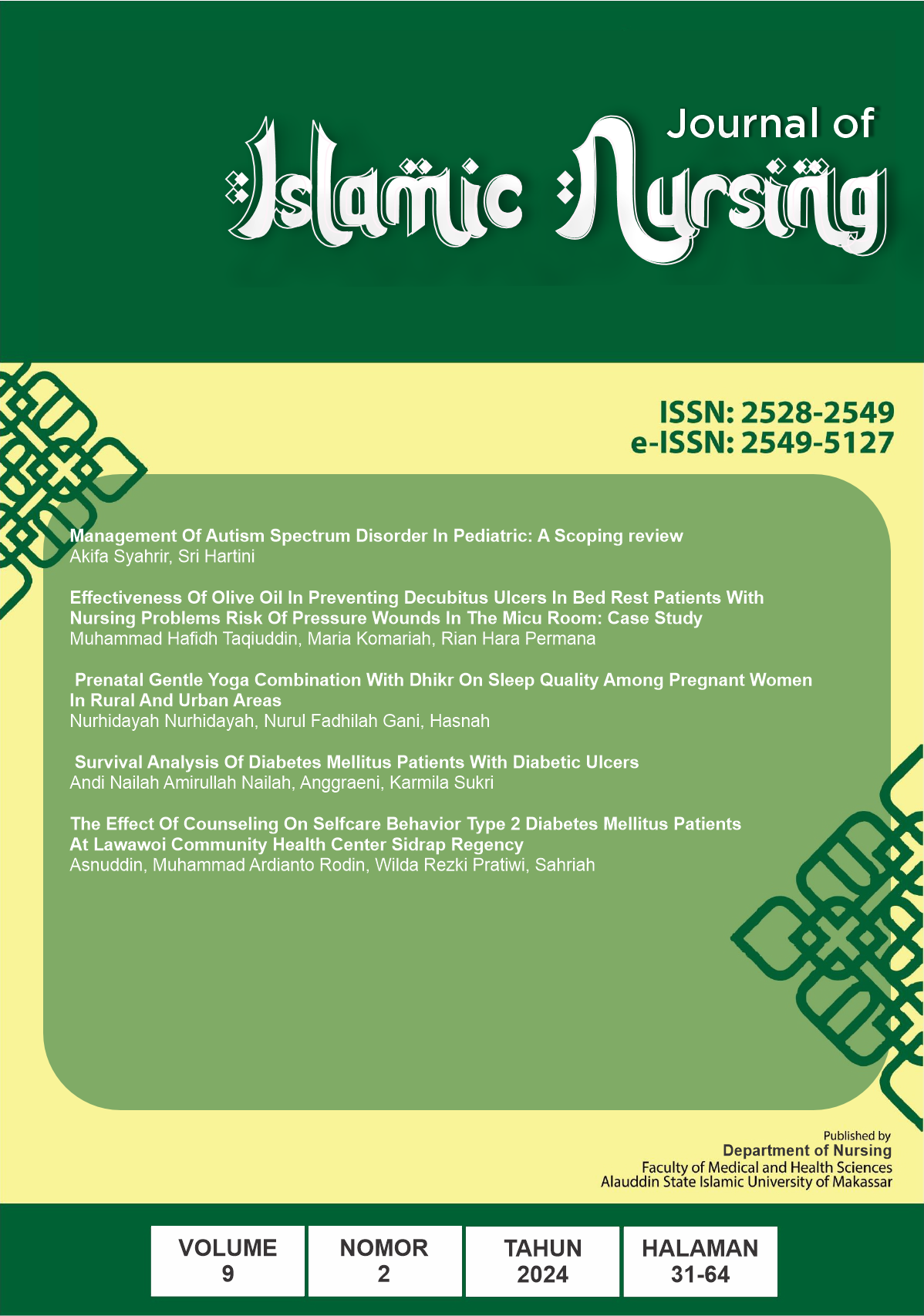THE EFFECT OF COUNSELING ON SELFCARE BEHAVIOR TYPE 2 DIABETES MELLITUS PATIENTS AT LAWAWOI COMMUNITY HEALTH CENTER SIDRAP REGENCY
Abstract
The effect of counseling on selfcare behavior type 2 diabetes mellitus patients at lawawoi community health center sidrap regency. Diabetes mellitus (DM) is a chronic metabolic disease that occurs either when the pancreas does not produce insulin or when the body cannot effectively use the insulin it produces. Type 2 diabetes mellitus occurs due to progressive loss of beta cell insulin secretion along with insulin resistance. The prevalence of diabetes mellitus worldwide is increasing from year to year. According to data, around 422 million people worldwide suffer from diabetes mellitus. Diabetes is expected to rank in the top 10 causes of death globally by 2022, according to data released by the World Health Organization (WHO). The purpose of this study was to determine the effect of counseling on selfcare behavior in patients with type 2 diabetes mellitus at the Lawawoi Health Center, Sidrap Regency in 2024. This type of research is quantitative research with the Quasy experiment method using a one group pre-posttest design approach where, after the first measurement (pre-test), then an intervention (treatment/action) is given, after which the next measurement (post-test) is carried out which occurs after the treatment is given. The results of the Wicoxon Test Distribution on the Self-care Behavior variable and Counseling Variable show that the significance value of the p-value is 0.05 < 0.000, which means that the Null Hypothesis (H0) is rejected and the Alternative Hypothesis (Ha) is accepted and meaningful. There is a significant influence between counseling on the selfcare behavior of people with type 2 diabetes mellitus at the Lawawoi Health Center, Sidrap Regency.


